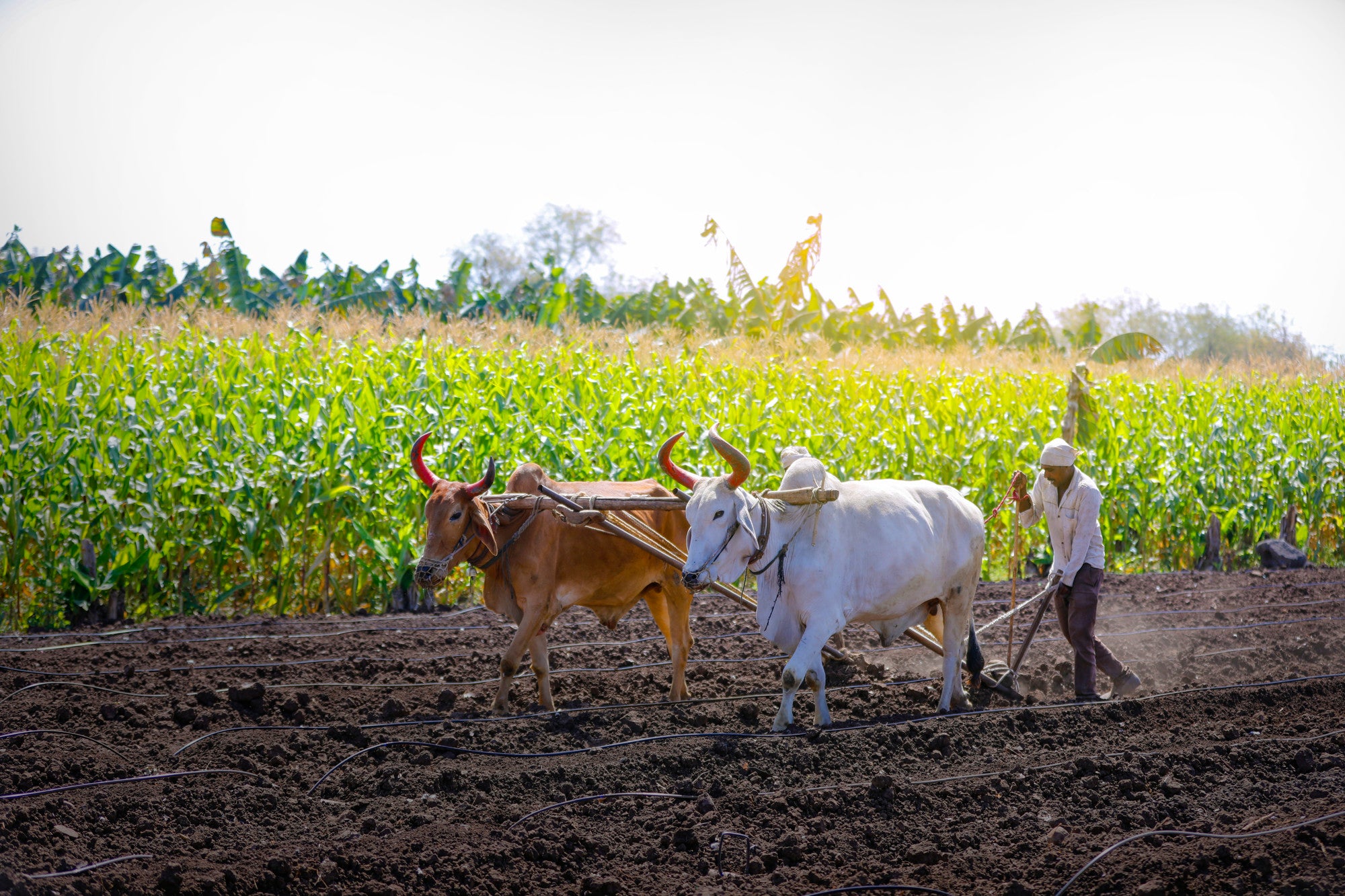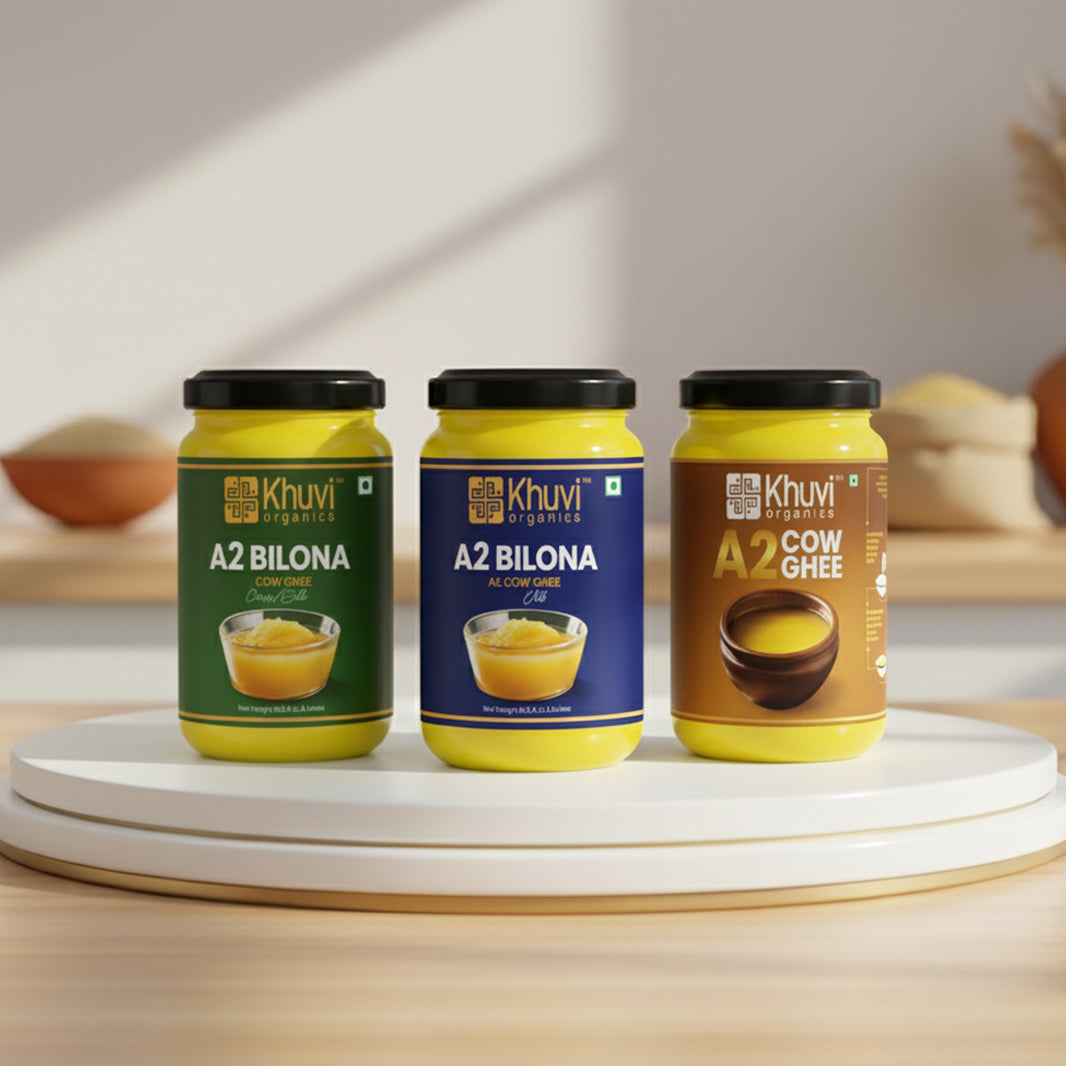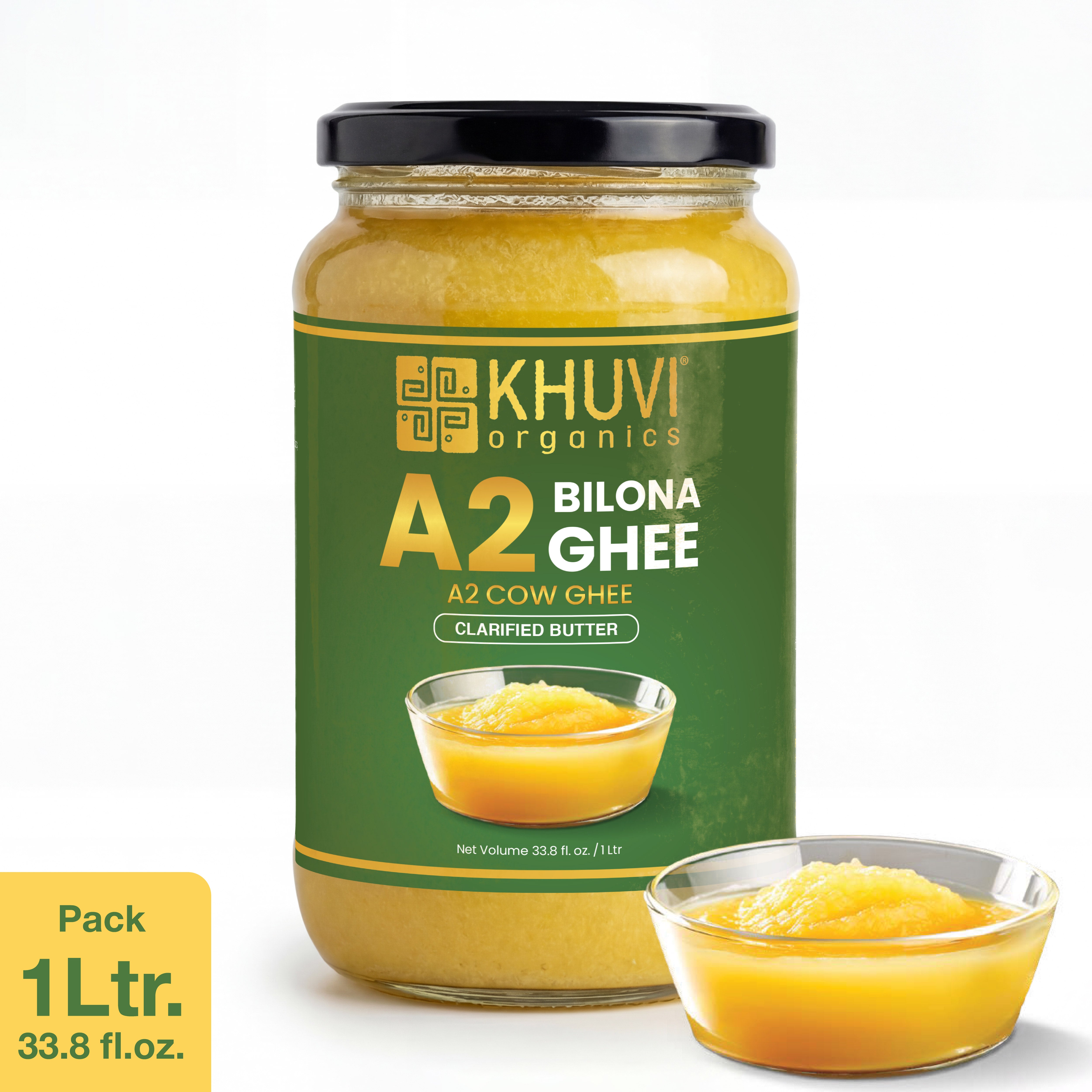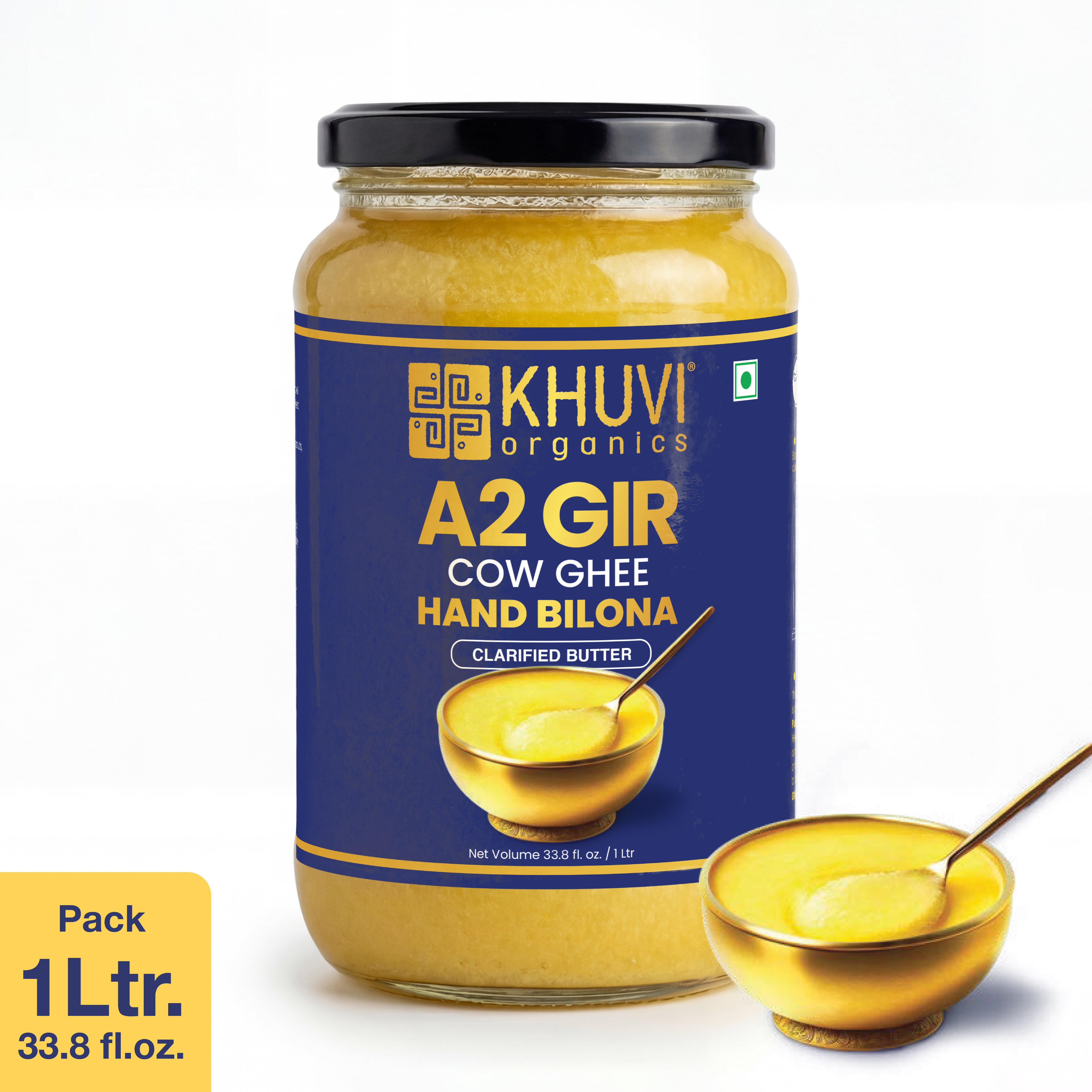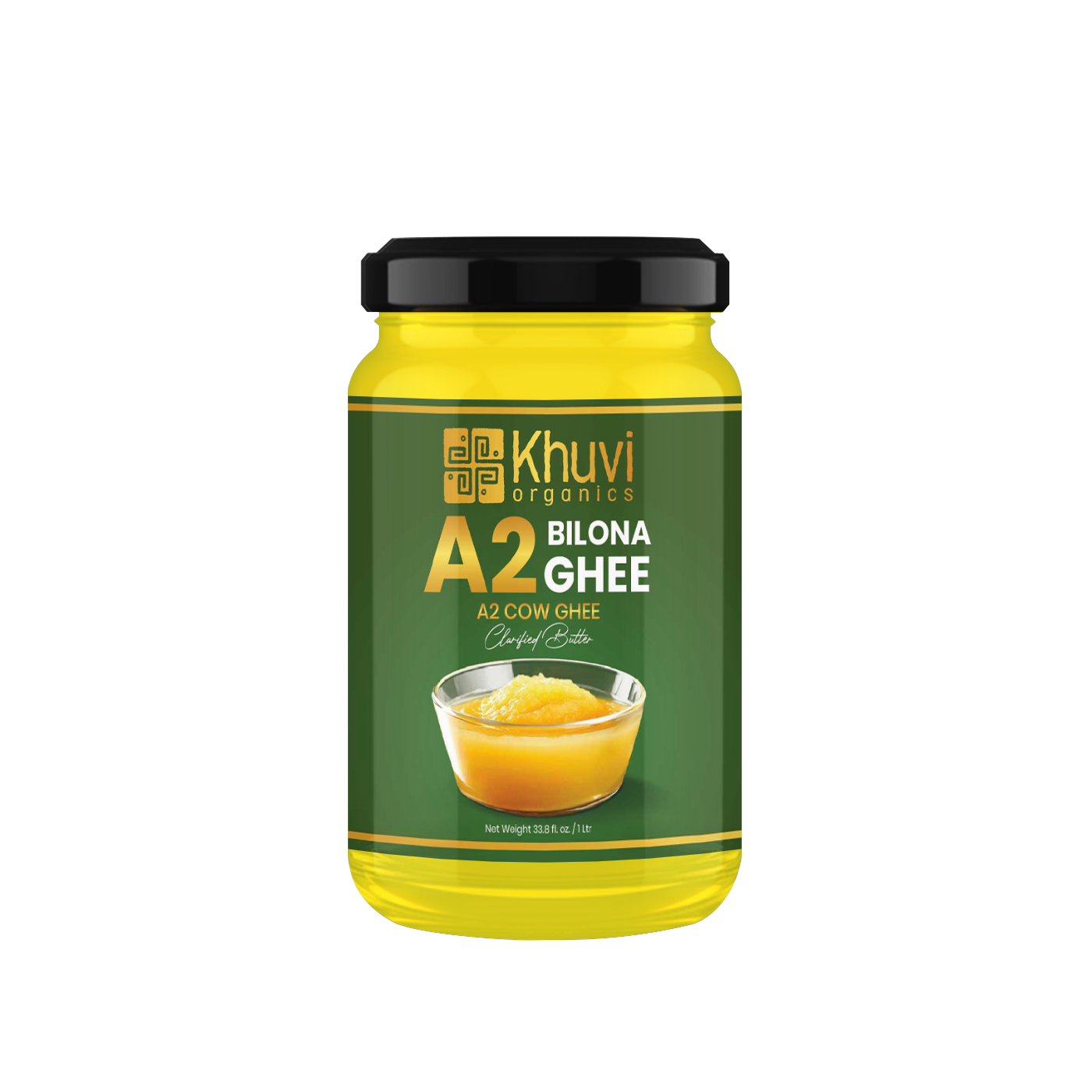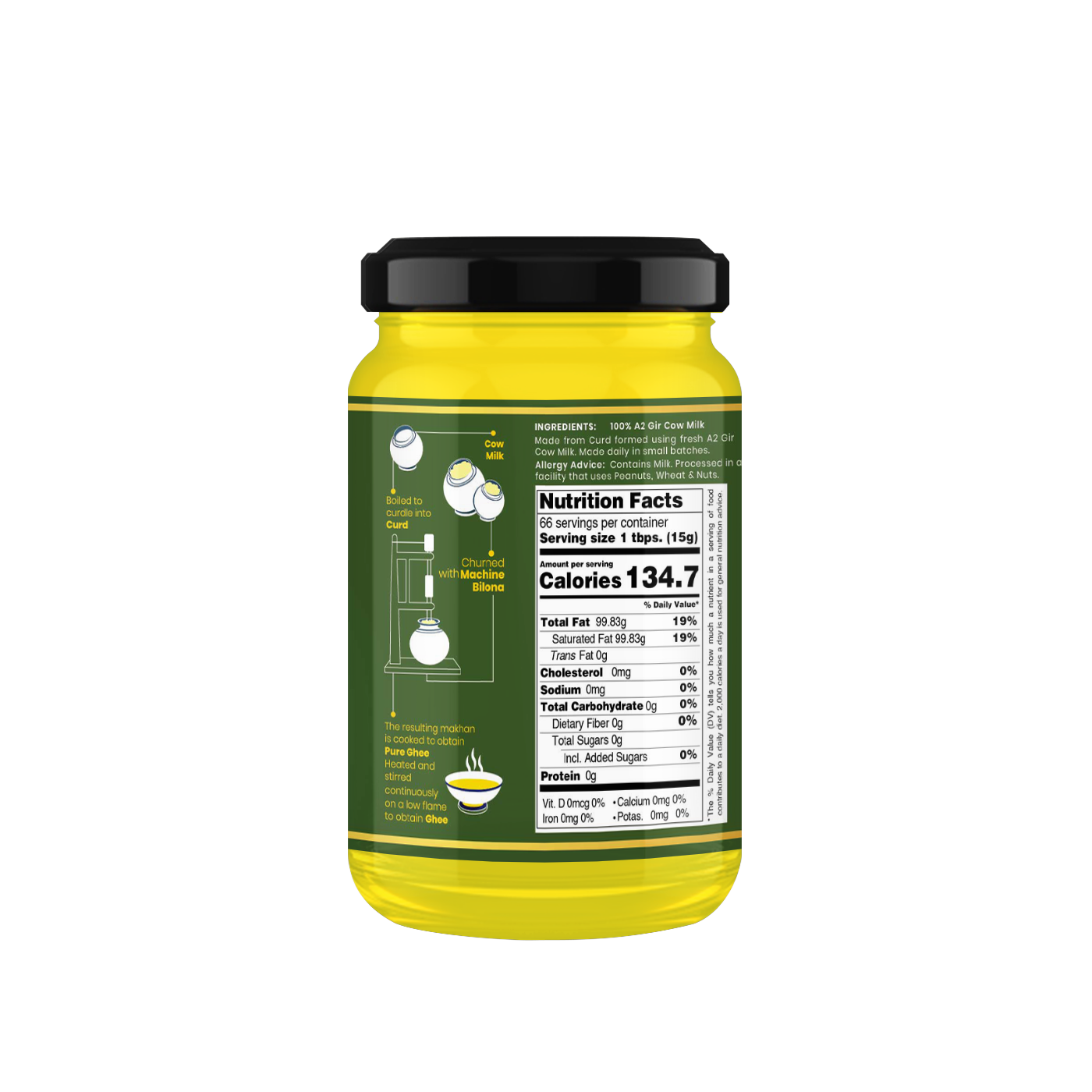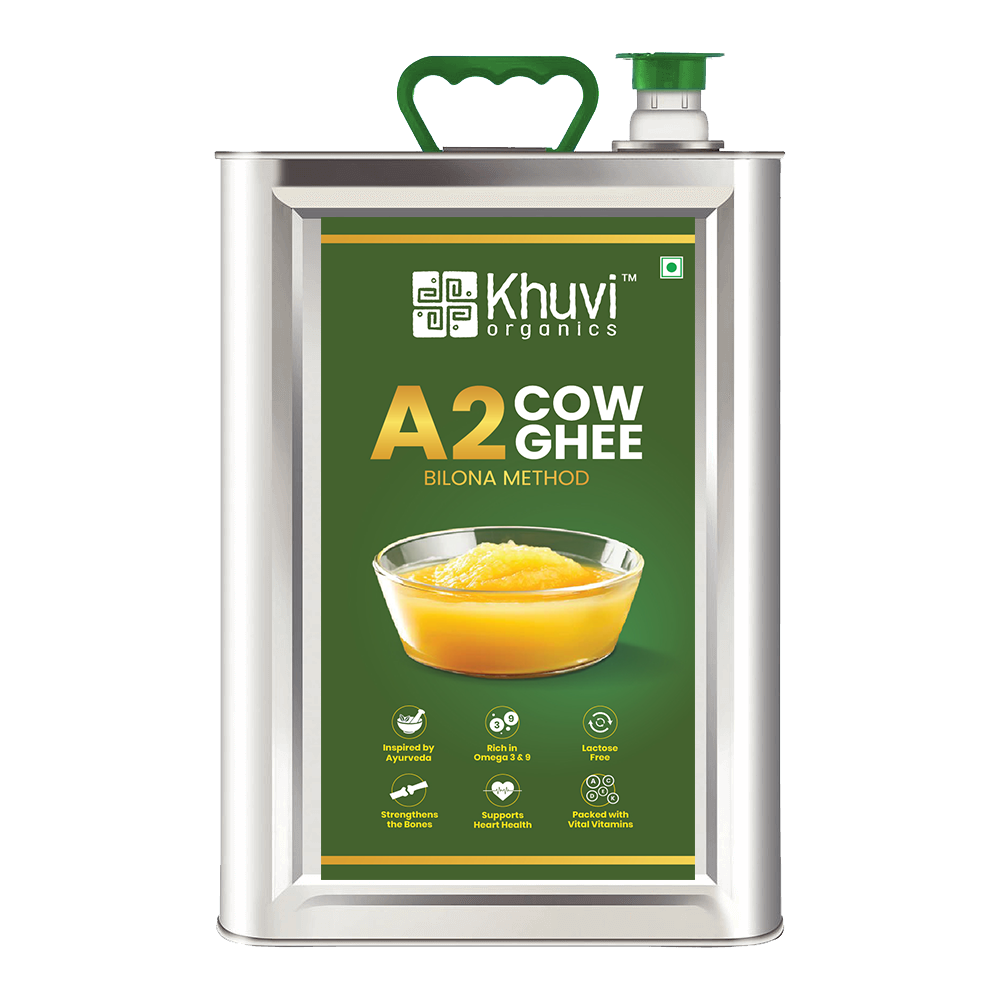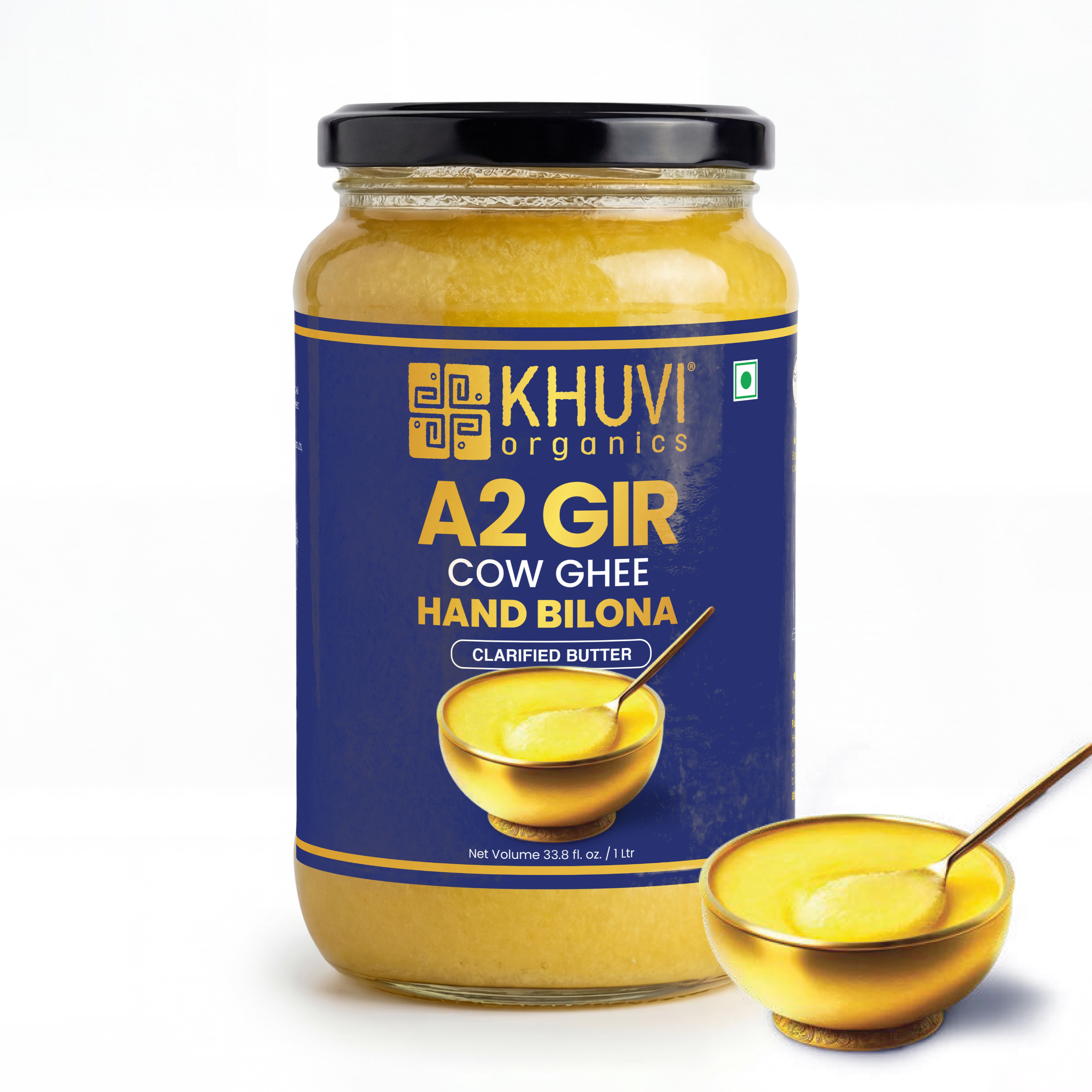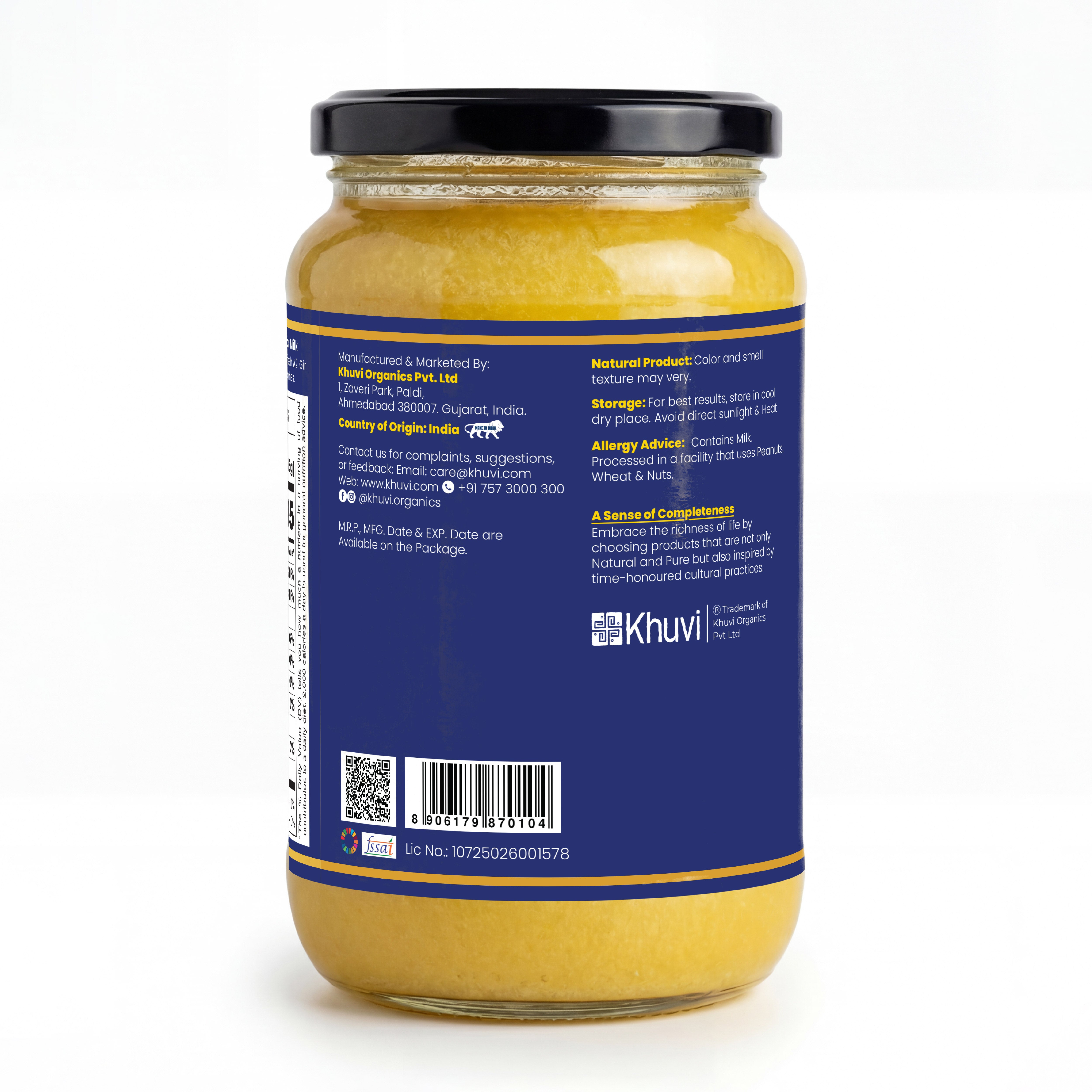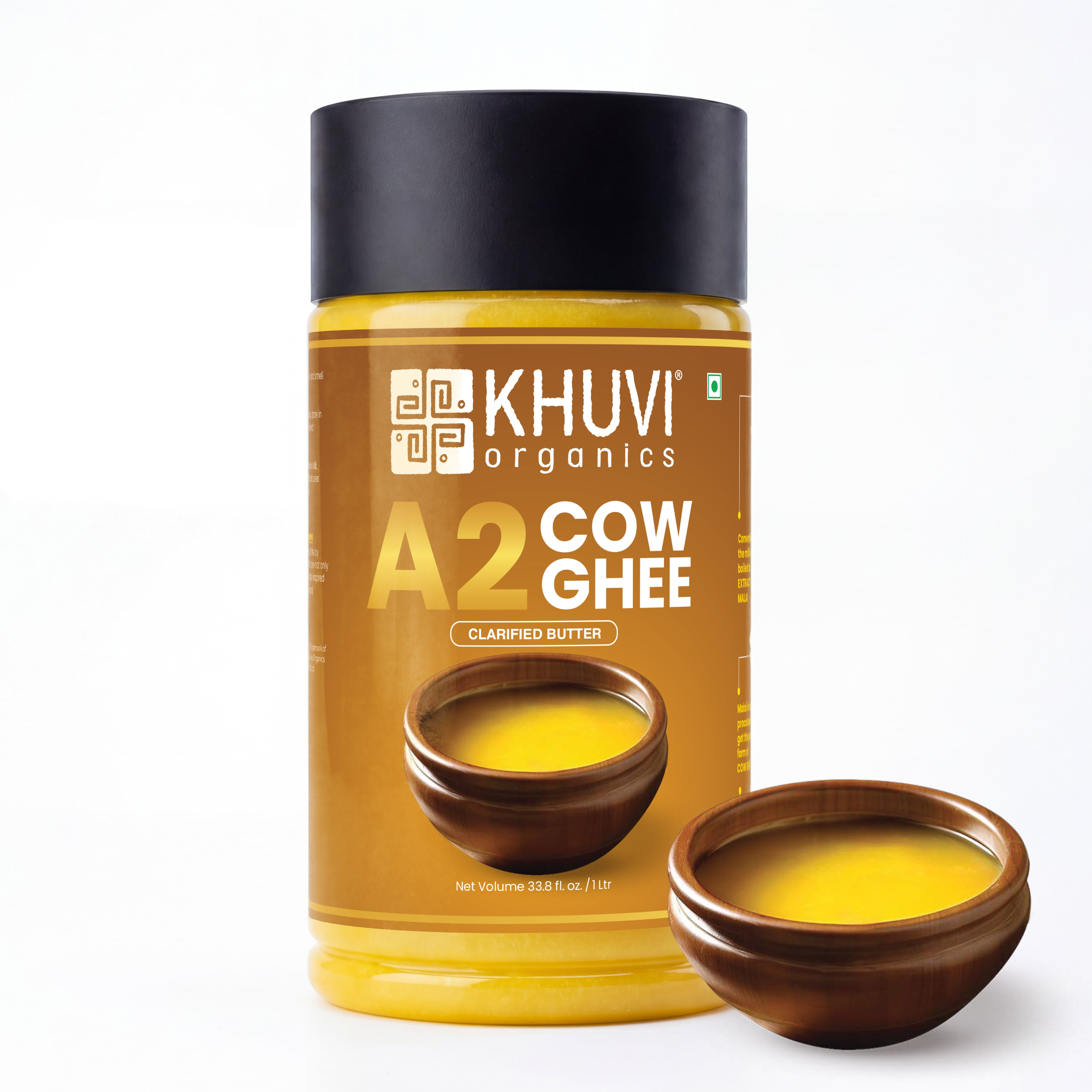





















































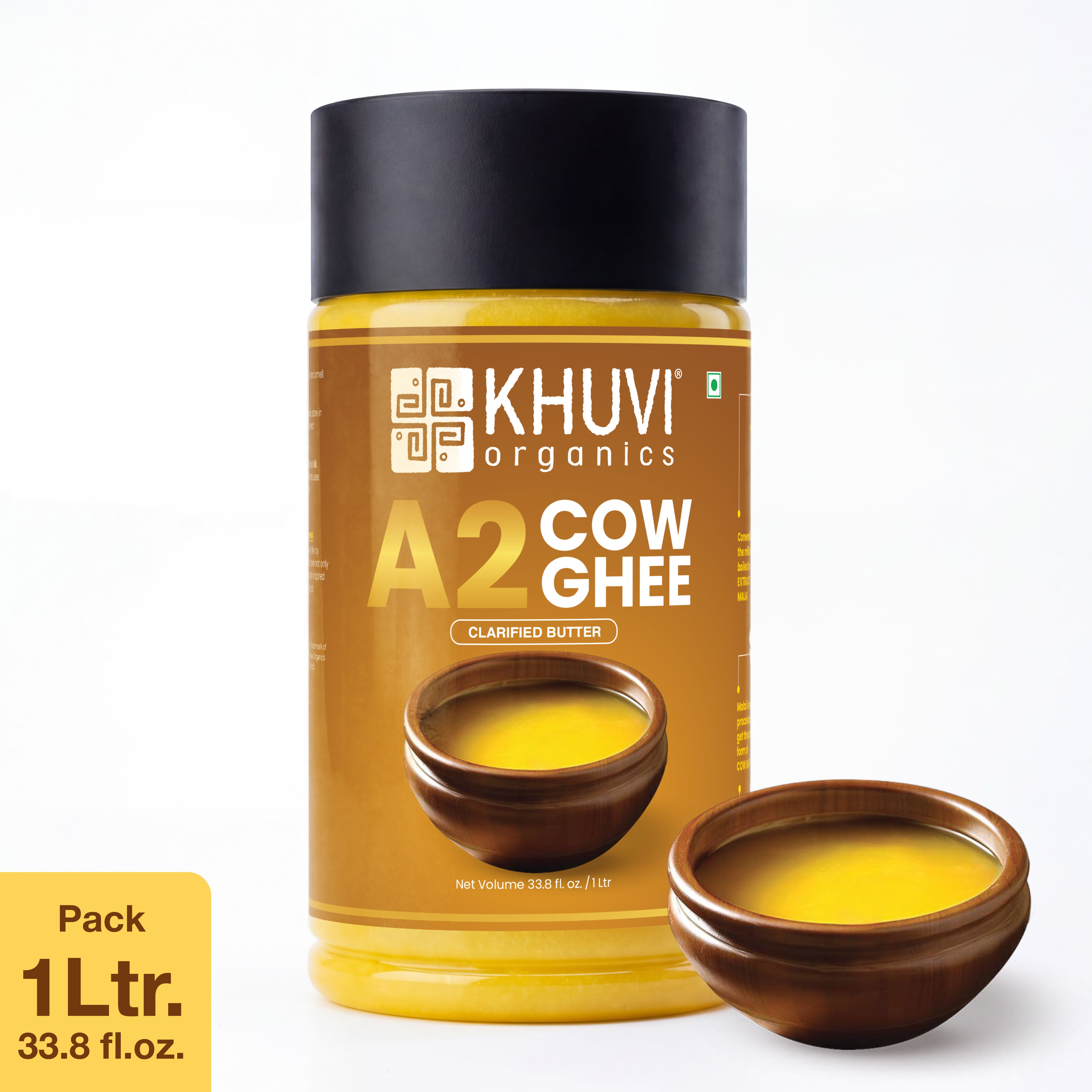
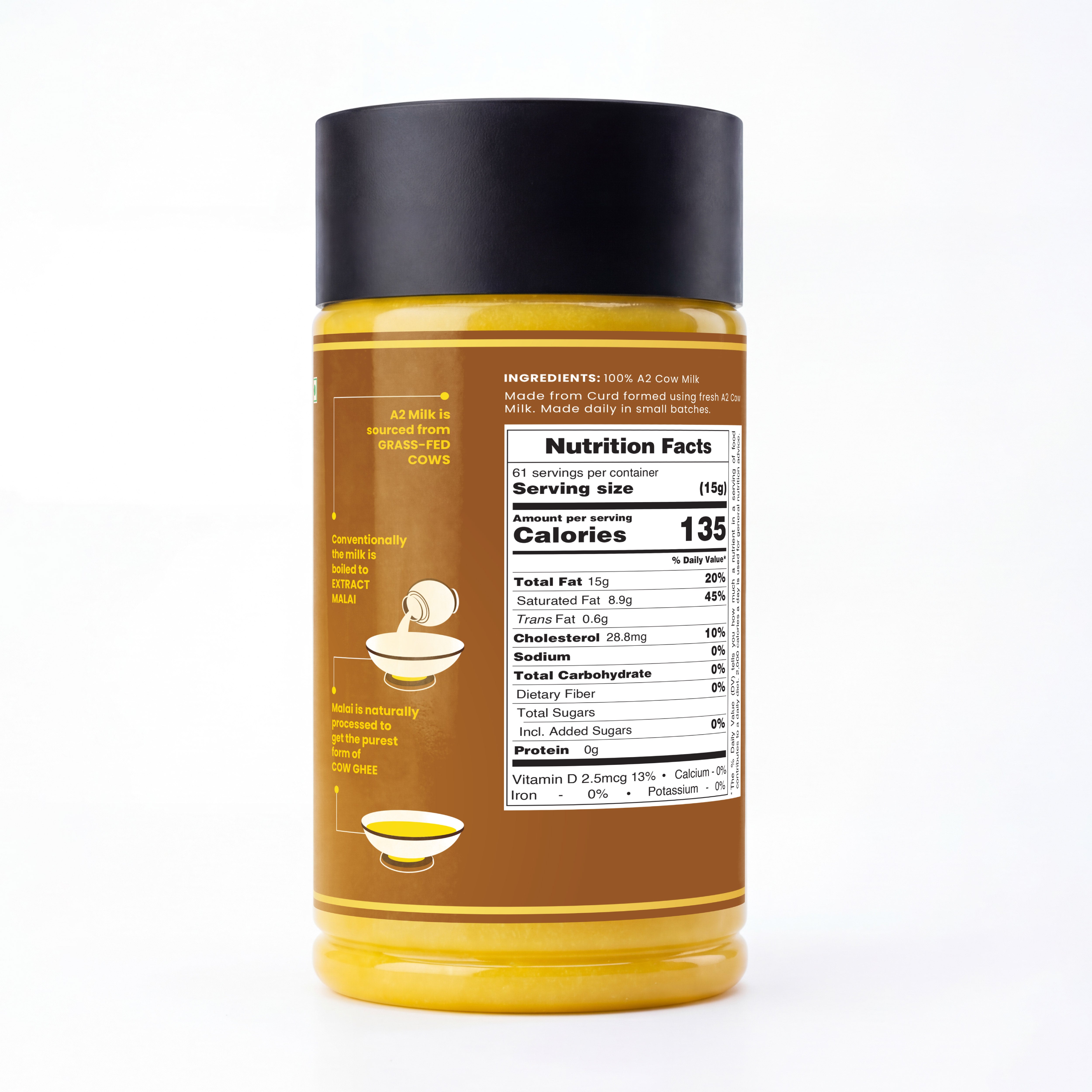
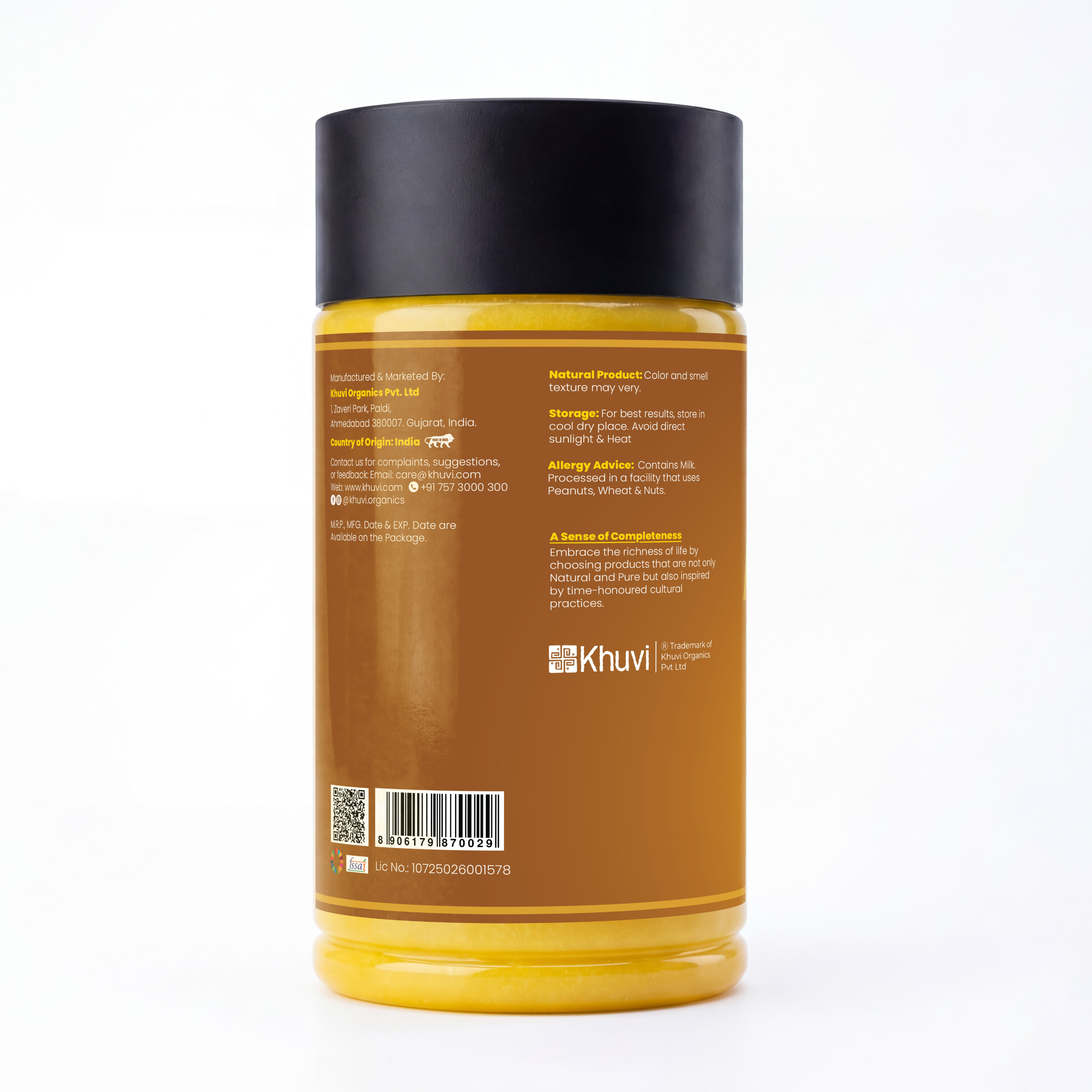
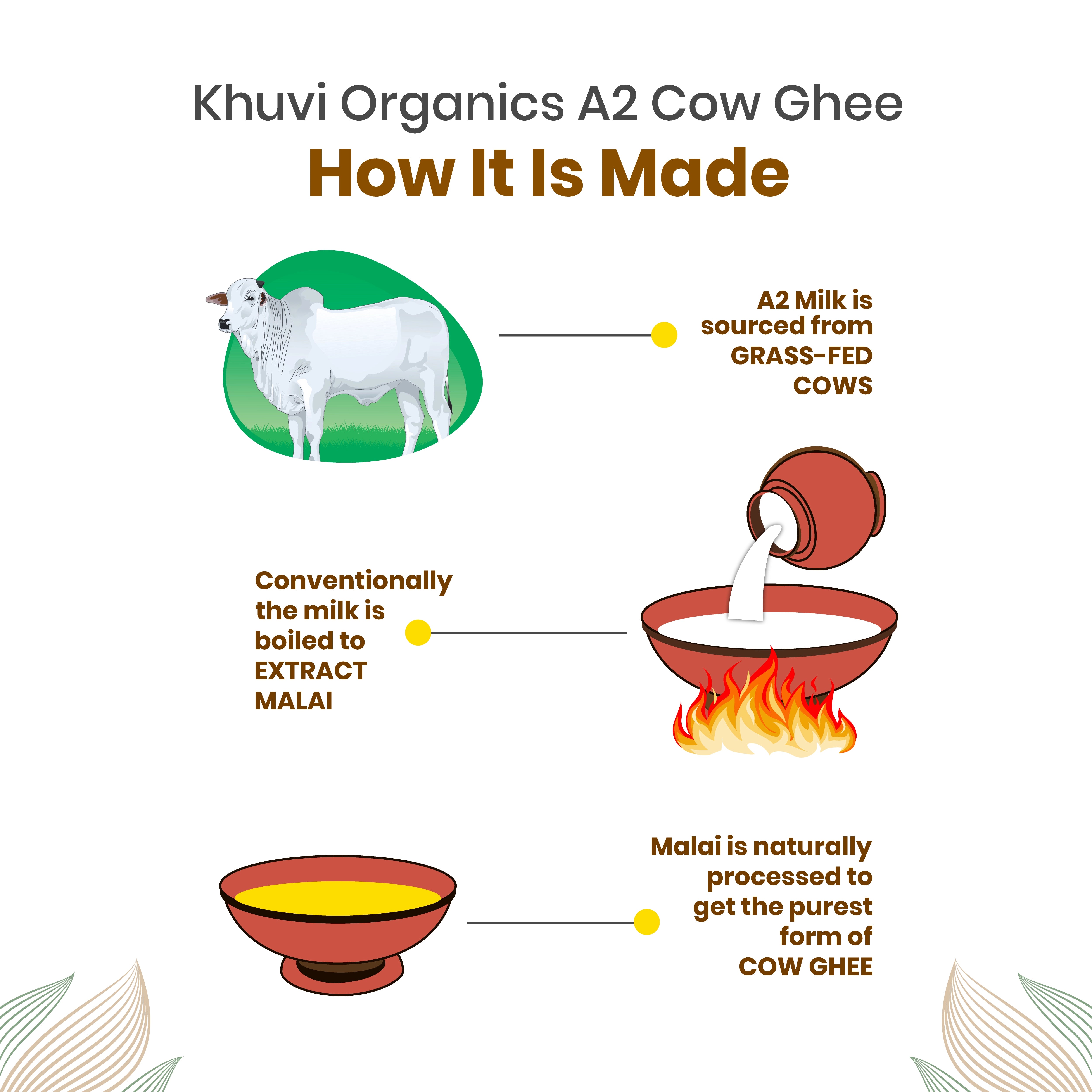

A2 Cow Pure Ghee
Ingredient: A2 Cow Milk

Pairs well with
Free Shipping Across India
Express Delivery Available
7 days Return/Exchange

A2 Cow Pure Ghee
If you have any questions, you are always welcome to contact us. We'll get back to you as soon as possible, within 24 hours on weekdays.
-
Shipping Information
Use this text to answer questions in as much detail as possible for your customers.
-
Customer Support
Use this text to answer questions in as much detail as possible for your customers.
-
FAQ’s
Use this text to answer questions in as much detail as possible for your customers.
-
Contact Us
Use this text to answer questions in as much detail as possible for your customers.
Ingredients
A2 Cow Milk
Shelf Life
12 Month
Dimensions
L: 20cm x 20cm
W: 20cm x 20cm
H: 20cm x 20cm
Description
A2 Cow Ghee is a type of clarified butter made from the milk of A2 cows, which are known to produce milk with a specific type of protein called A2 beta-casein. This type of ghee has been a staple of traditional Indian cooking for centuries and is widely used in Ayurvedic medicine for its numerous health benefits.
According to Ayurveda, A2 Cow Ghee is believed to have a variety of health benefits. It is said to improve digestion, boost the immune system, and promote healthy skin and hair. It is also believed to have anti-inflammatory properties and to help lower cholesterol levels.
Overall, A2 Cow Ghee is a versatile and healthy cooking ingredient that adds a rich, nutty flavor to a variety of dishes. Whether used as a cooking fat or as a spread on toast or naan bread, A2 Cow Ghee is a delicious and nutritious addition to any diet.
What are the Benefits?
What is A2 cow ghee?
What is the difference between A1 and A2 cow ghee?
What are the health benefits of A2 cow ghee?
Is A2 cow ghee suitable for lactose intolerant people?
How do I store A2 cow ghee?
Can A2 cow ghee be used for cooking?
Pure & Healthy
Our Range OF A2 Cow Ghee
Hand Bilona A2 Gir Cow Pure Ghee

Fda certified quality

Sustainable Impact Partners

purity you can trust
FAQs
Please read our FAQs page to find out more.
Do organic products taste different from conventional food?
Many studies have shown that there is no such difference of taste in organic food and conventional food but the well-designed studies have researched and came to a conclusion like people favor the taste of organic food more, over conventional food. Because, the organic food has more antioxidants and other vitamins into it, which makes it tastier and better. And nowadays chefs do prefer to use organic food over conventional food not only for better taste but for better health benefits too.
What is authenticity of khuvi?
Khuvi’s authenticity lies in the certifications. As we go through a rigorous process of getting our farms as well as our processing certified. Also, we are getting certified by well-known accredited certification bodies.
Difference between organic and conventional food?
Growing
- Organic grown with natural fertilizers (manure, compost).
- Conventional grown with synthetic chemical fertilizers, pesticides etc.
Weeds
In Organic weeds are controlled naturally (crop rotation, hand weeding, mulching, and tilling).
In conventional weeds are controlled with chemical herbicides.
- Pets
- Organic, pests are controlled using natural methods (birds, insects, trap crops) and naturally-derived herbal pesticides
- Conventional, pests are controlled with synthetic pesticides
History of organic farming?
- In an ancient India, the whole agricultural system was being practiced using organic techniques, and it lasted for almost thousands of years. For which animal waste (e.g. composted dungs, urine etc.), composted plants waste and other wastages were being used as fertilizer.
- In mid 1970s, the organic farming movement in India started for the Industrialization of Agriculture. And before that all the traditional farming was known as Organic Farming due to less usage of pesticide and toxins. For an example, Forest Gardening, an organic food production system, counted as one of the world’s oldest organic farming and organic food producing system.
- At Khuvi, Organic Farming doesn’t mean it is a return to the older methods our ancestors had but it is something what we have learned over several millennia.
Advantage of organic farming
- It helps to maintain environment health by reducing the level of pollution
- It reduces human and animal health hazards by reducing the level of residues in the product
- It helps in keeping agricultural production at a sustainable level
- It reduces the cost of agricultural production and also improves the soil health
- It ensures optimum utilization of natural resources for short-term benefit and helps in conserving them for future generation
- It not only saves energy for both animal and machine, but also reduces risk of crop failure
- It improves the soil physical properties such as granulation, good tilth, good aeration, easy root penetration and improves water-holding capacity and reduces erosion.
- It improves the soil’s chemical properties such as supply and retention of soil nutrients, reduces nutrient loss into water bodies and environment and promotes favourable chemical reactions.
Organic farming
Organic farming is a production system which avoids or largely excludes the use of synthetically compounded fertilizers, pesticides, growth regulators, genetically modified organisms and livestock food additives. To the maximum extent possible organic farming system rely upon crop rotations, use of crop residues, animal manures, legumes, green manures, off farm organic wastes, biofertilizers, mechanical cultivation, mineral bearing rocks and aspects of biological control to maintain soil productivity and tilth to supply plant nutrients and to control insect, weeds and other pests.

